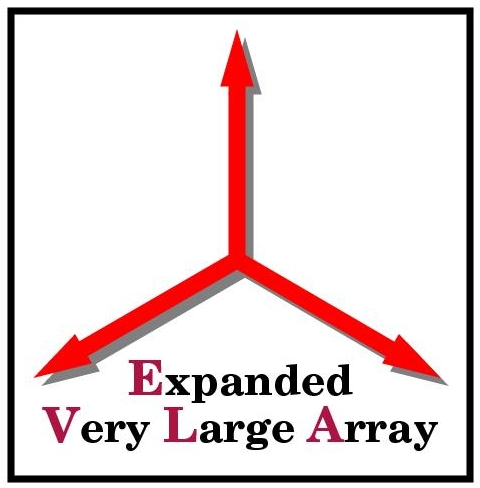Introduction
The SSS Utility Software is a collection of java classes organized by purpose into several packages. These classes are very general in nature and have no dependencies on any other SSS software. This makes these utility packages very light weight and very easy to use by other projects. As with all SSS software, the classes are not merely a collection of getters and setters. That is, they do not just persist state, but also do useful work for their clients. A pure object-oriented approach was followed in the implementation of each of these packages.
Package Summary
The following are brief descriptions of the packages that comprise the SSS Utility Software. For more details on a particular package, follow the link to that package.
- sss.astronomy
Classes related to general astronomical classes are found here. Some examples of these are: EphemerisTable, PolarizationParameter, and SkyPosition.
- sss.catalog
A generic catalog construct. A Catalog holds a collection of CatalogItems and, optionally, a collection of CatalogItemGroups. A CatalogItemGroup also holds CatalogItems. For a retailer, the group concept would be used for things like electronics, furniture, sporting goods, etc. An item may belong to multiple groups.
Clients may use a SimpleCatalog of objects in the same way they would use one of the classes from java's Collections Framework (List, Set, Map, etc.). A library, for example, might have SimpleCatalog<Book>. Alternatively, clients may wish to subclass the abstract catalog classes in order to specialize them.
In the SSS Model Software, these catalog classes are used to support the SourceCatalog and ResourceCatalog concepts, which are in turn used by the Source Catalog Tool (SCT) and Resource Catalog Tool (RCT). Observers use these tools to access standard observatory catalogs and to develop their own. Entries from these catalogs may then be used in the Observation Preparation Tool (OPT).
- sss.clipboard
Support for copy / paste operations.
- sss.html
Support for HyperText Markup Language reading and writing.
- sss.math
Mathematical concepts such as Polynomial and CubicSpline.
- sss.measure
Measures and their units. This is probably the most important, and most heavily used, package in this group. These classes relieve the model and the applications of the burdens associated with handling measurements. From the applications' viewpoints, the nicest feature of the measurements is that they all know how to parse themselves from text in a variety of units, and often in a variety of formats. They also know how to express themselves as text, again, often in various formats.
A major feature of the measures classes is that they let client code completely ignore units, if they so choose. For example, if client code has an Angle, a1, from which another Angle, a2, must be subtracted, the client does not have to care that a1 might be expressed in degrees and a2 might be expressed in radians. The client merely tells a1 to subtract from itself a2 (a1.subtract(a2)), and the Angle class has the responsibility of making sure the units are taken into account. Of course, should a client want to deal with the units, it can. All measures are capable of converting themselves to other units (a1.convertTo(ARC_MINUTE)), and of expressing their values in other units without actually converting themselves internally (double arcMin = a1.toUnits(ARC_MINUTE)).
Many of the measures classes have corresponding range, or interval, classes. For example, there is both a Frequency class and a FrequencyRange class. The range classes have the same parsing and text expression abilities as their corresponding primitive classes, but they also add a lot more functionality. Most ranges can test for overlap, containment, and contiguousness with another range. They can also be interesected and merged with another range. The goal, as always, is to provide services to clients without forcing those clients to get themselves dirty with the details.
- sss.sort
Support for sorting collections. The main focus of this package is to help support sorting where multiple keys (primary, secondary, etc.) are needed. The CompoundComparator is the class that handles the multiple-keys concept. The other classes provide support for how each key should behave. Should a given key sort in an ascending, descending, or custom order? If text is being sorted, should the comparison be case-sensitive?
- sss.util
A catch-all for useful objects that do not belong to one of the other packages. We often move things out of this package and into one of their own, once we have enough to warrant separation. (This is how the math package was born.)
- sss.validation
A framework for checking the internal consistency of an object.
UML Diagrams
Unlike the situation with the SSS Model classes, the Utility classes tend to be related to very few other classes. For this reason there is not much utility to producing diagrams for these classes. There are, however, a few places where such diagrams add value, and these are given below:
Class Diagrams
- SkyPosition and Its Implementations
- Polynomial Position: Use of Polynomial Class
- Validation Package
- Validation Failure
Sequence Diagrams
API Documentation
The application programmers' interface for all utility classes may be seen by going to the API overview.
Source Location
The source code for the classes of these packages, the test classes written for them, and all other supporting files are held in a subversion repository (user name and password required).
Jar File
Various versions of the jar files that contain the compiled classes that correspond to this documentation may be found in the Utility Repository.
Dependencies
As mentioned in the Introduction, the SSS Utility Software classes are dependent on no other SSS software. There are some dependencies, though, on third party software, such as Apache's log4j, Sun's JAXB 2.0, and (for the test classes only) JUnit. The full set of dependencies may be found in the pom.xml file that we use in our Maven 2 build process. Various versions of these may be found in the Utility Repository.
Modified on Friday, 08-May-2009 08:18:02 MDT

